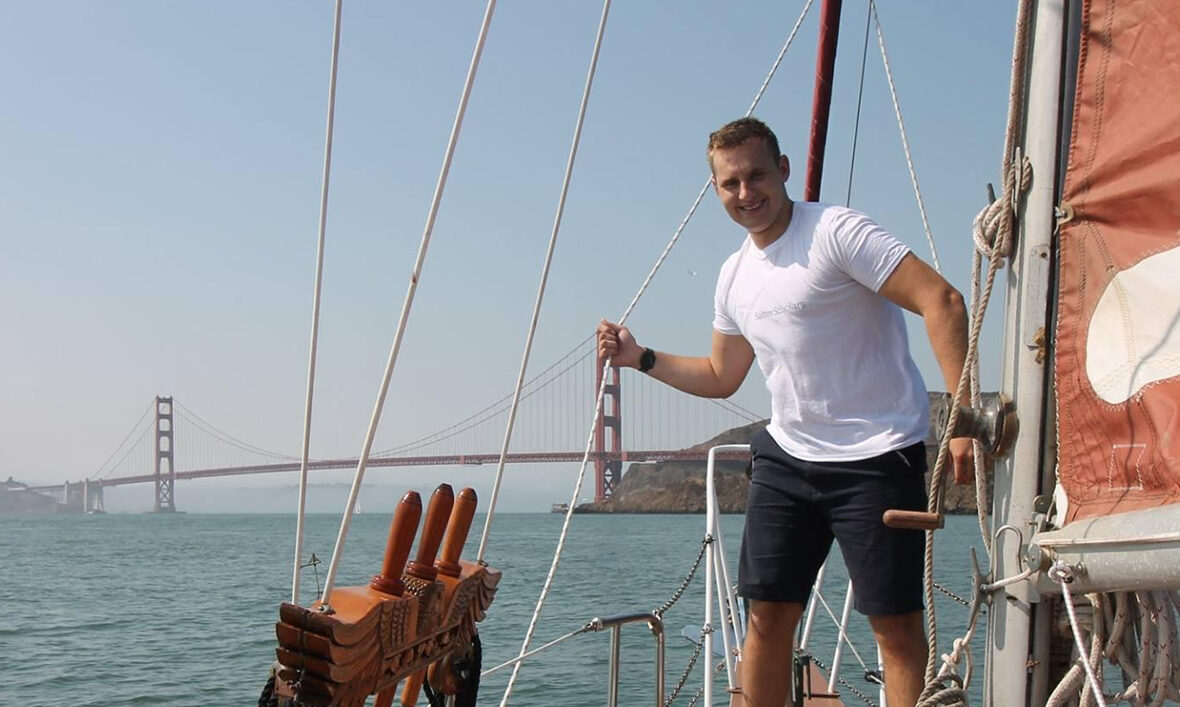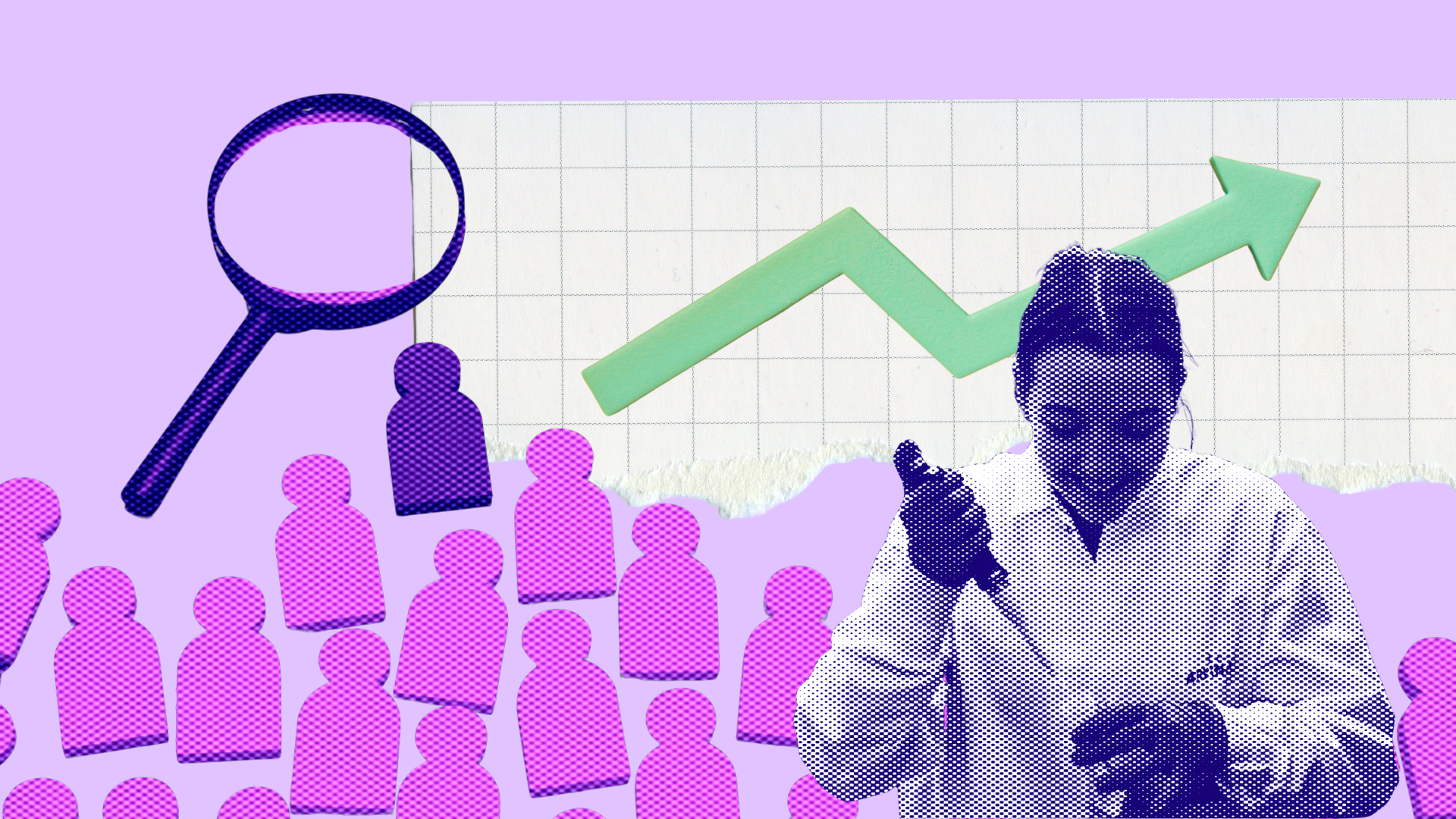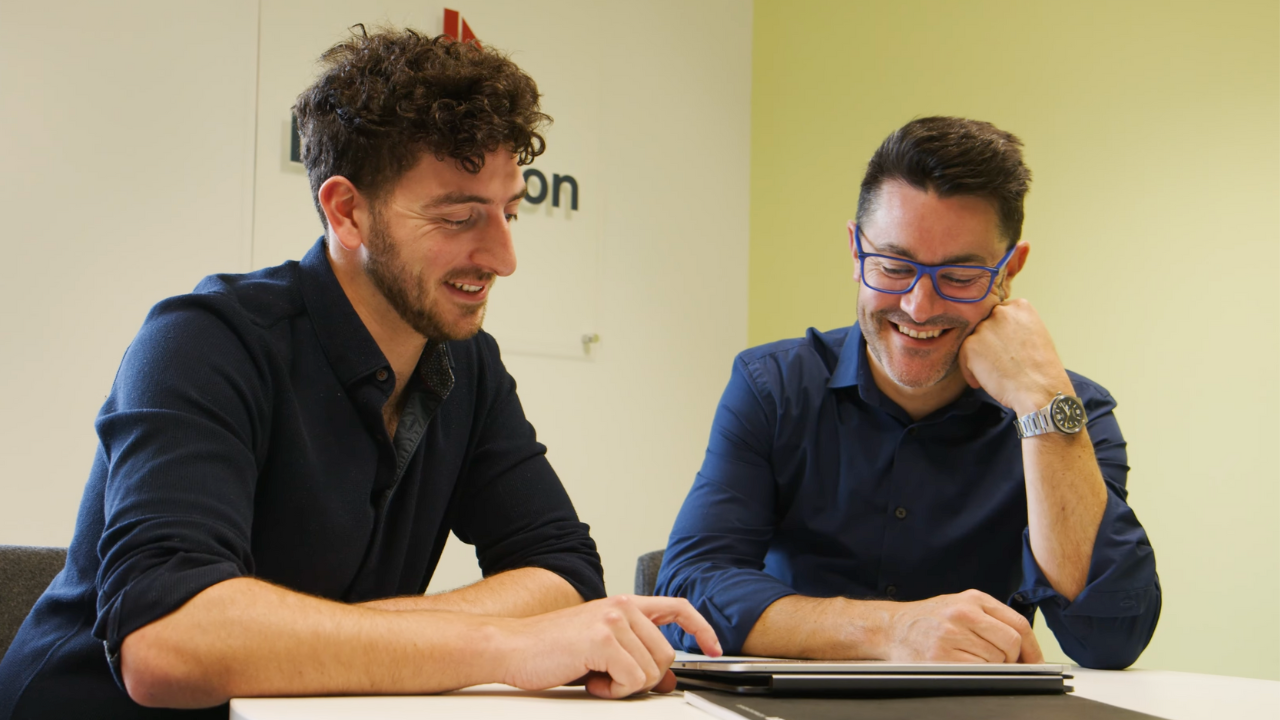After graduating with a Masters in Mechanical Engineering from Heriot Watt University, he applied for the Saltire Scholar programme and seized the once in a lifetime opportunity to travel to San Rafael, just north of San Francisco, to work for Green Sun Medical as a Mechanical Engineering Intern.
Following graduation and a brief internship with a bioengineering start up based out of Heriot Watt University, he joined SGN as a graduate in the Energy Futures team — who work collaboratively with the wider gas industry to develop and advance the technical and safety case to prove and demonstrate the gas networks across the UK are suitable to be repurposed and converted to transport 100% hydrogen gas.
We caught up with Alastair to discuss sustainability, the younger generation's sense of urgency and how Scotland can play a leading role in the global net zero mission.

ES: What aspects of sustainability do you work with on a day-to-day basis?
Alastair Scott: Now a Project Officer in the Energy Futures Team, my role has varied over the years from supporting key decarbonisation projects, developing SGN’s business plan to Ofgem (UK energy regulator), supporting the successful H100 Fife project bid — which will construct the world’s first end to end 100% hydrogen for heat demonstration — and now beginning to develop and take on my own projects.
My current role focuses on industrial clusters and business development, working closely with industry and future hydrogen producers to align regional conversion and infrastructure development plans with all aspects of the required supply chain and end to end system.
The work SGN is carrying out to enable the decarbonisation of the gas networks is of key national importance and will be essential in determining the optimal pathway to deliver net zero in Scotland and the rest of the UK.
Hydrogen will undoubtably play a key role in the fight against climate change, and working for a truly world-leading organisation in this area of sustainability has been (and continues to be) a highly rewarding and motivating challenge and experience.
Sustainability and ensuring there exists a clear and deliverable decarbonisation pathway must take centre stage for the Scottish economy and the businesses comprising it.
ES: Why do you think it’s important that sustainability is a focus for businesses in Scotland?
AS: Scotland has long established itself as a world leader in the transition to net zero, with significant progress made in the past 20 years, mainly through the build out of renewable electricity generation.
There remain, however — in Scotland and across the world — significant challenges ahead in ensuring each and every energy demand and part of society; every person and every business; has access to clean energy and can set out on a journey to net zero in a practical, affordable, and fair way.
The scale of the challenge of transitioning the Scottish and global economies to a point where net zero greenhouse gas emissions are produced by its activity — whilst ensuring security of energy supply — cannot be understated. Scottish businesses can only get there by working together in a transparent way, so that no one is left behind.
The same is true for the global community — the developing world, who are feeling and will feel the worst effects of climate change, must not be left unsupported in collective efforts to reach net zero.
Sustainability and ensuring there exists a clear and deliverable decarbonisation pathway must take centre stage for the Scottish economy and the businesses comprising it. Not only because it simply must be done, but because to truly be a world leader in the fight against climate change, Scotland must demonstrate its ability to collaboratively and fairly achieve a net zero economy — allowing others to follow its example and share in the lessons learnt along the way.
ES: As a young person, do you think your focus on sustainability is different from those who are older/more established?
AS: To some extent, yes. I have often in the past found that the younger generation is perhaps more aware of the scale and importance of addressing climate change, whilst through no fault of their own also underestimating the required scale and complexity of the solutions.
On the other hand, older generations can perhaps underestimate the importance of addressing climate change, while better understanding the potential solutions to the problem and the difficulties we face in implementing them. I think, however, mindsets are shifting in a positive direction, with climate change now at the top of many people’s priorities in elections and in their own daily lives.
Climate activism has played a key role in raising the issue and the consequences of doing nothing or too little too slowly, and has subsequently catalysed net zero commitments from corporations and governments across the globe.
We must reach a point, however, where climate activism is not required, and that can only be achieved by unifying society across the political spectrum and across generations, to a point of mutual understanding of the importance of the issue, the consequences of inaction, and what the required solutions will mean for everyone.

Alastair during his Saltire Scholar internship at Green Sun Medical in San Francisco, California.
The challenge of reaching net zero is perhaps the greatest we have every faced, and will require the brightest minds, major investments and a mutual willingness to change and adapt by every person, every business and every country on Earth.
ES: Do you have any thoughts on Scotland’s opportunity to be a leading player in the sustainability space? If so, what do you think it is important for the country/our govt/people to consider?
AS: Scotland possesses the natural resources, infrastructure and talent to become a global leader in sustainability. Indeed, Scotland can lead by example in sustainability — from the largest corporations down to individuals.
To achieve a net zero economy, all fossil fuel energy demands across society; from cars and household appliances to heavy industries and manufacturing, must be adapted or replaced by technologies which demand clean energy sources, such as electricity or hydrogen. This clean energy must be produced in a reliable, secure and affordable way and the infrastructure must exist to safely transport it, with the required capacity of energy delivery and also energy storage in place.
The significant decarbonisation progress of Scotland and the UK has mainly been due to the phasing out of coal and gas fired electricity generation, which has been replaced by renewable generation capacity. This can be considered 'low hanging fruit', with other more challenging decarbonisation sectors — such as heating, transport and industry — experiencing very little decarbonisation progress relative to the progress seen in the electricity grid and the energy demands it supplies.
It is critical that the supply of clean energy is available through multiple vectors — i.e., electricity, biofuels, and hydrogen — to ensure, wherever safe and practical, the continued use of existing infrastructure. This reduces the requirement for new infrastructure, reducing cost and disruption to society. This will also allow full decarbonisation optionality for customers and businesses, to ensure optimal solutions are found across every business, household and energy demand currently supplied by fossil fuels.
Policy and investment must strive to achieve this optionality of net zero energy supplies, to ensure net zero is achieved in the most deliverable and affordable way — but cumulative impact of individuals and businesses’ decisions today and in the future shouldn’t be underestimated.
We can all make a difference now by taking positive, sustainable steps to adjust our behaviour and reduce our carbon footprint, which will cumulatively have a material impact on emissions and stimulate the appetite for change so others may follow.
ES: Do you have any particular ambitions/hopes for COP26 – either what is discussed or what the outputs may be?
AS: I firmly believe that COP26 represents humanity’s best and possibly last remaining chance to reach agreement on the necessary steps to address climate change. We must unify behind this issue that has divided so many for too long.
Fundamentally, agreements must be reached on reducing greenhouse gas emissions to limit global warming ideally below 1.5 degrees, which will require major emission reductions in the short term, and net zero emissions by 2050 or earlier.
It is also critical that agreements are reached to halt the loss of biodiversity and allow our great carbon sinks (such as forests and oceans) to heal and thrive once again — resulting in a world where we no longer lose and destroy so much every year. To allow nature to thrive, and to ensure food security, we must halt 'desertification', implement more sustainable farming methods and take better care of our oceans.
Lastly, developing nations must be supported so that they can industrialise and grow, like we did, but in a sustainable, fair and affordable way. This will require significant collaboration with, and investment into, these nations. If left behind, they will suffer the most due to our collective inaction.
Climate change is an existential threat to humanity and all life on earth — one that simply must be addressed. The challenge of reaching net zero is perhaps the greatest we have every faced, and will require the brightest minds, major investments and a mutual willingness to change and adapt by every person, every business and every country on Earth.
Transitioning to net zero and a sustainable world should not be seen as a burden, but as a golden opportunity for us all to undo the damage we have done, and achieve a clean, fair and safe world for all. I remain optimistic that COP26 will provide the deliverable commitments, unity and tools to allow us to achieve this world.
-----

From real-time dashboards to cost-saving automation - structured internship programmes deliver commercial results. Here's how to make them work.

Young entrepreneurs will be supported to turn their ideas into successful businesses through a new Scottish Government programme.

An internship through the Saltire Scholars Programme helped Donaldson Group create Spec3D, a new 3D visualisation business now used by house builders across the UK.